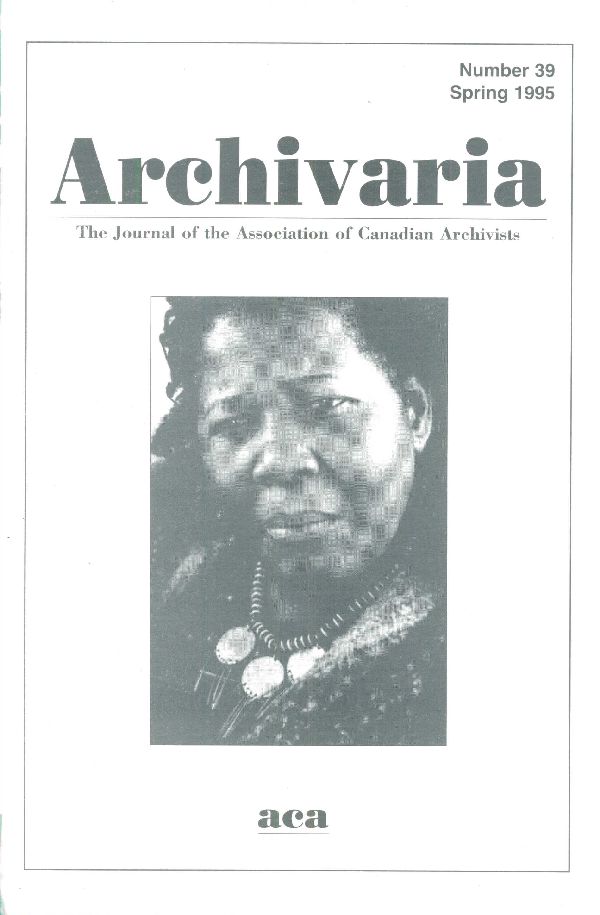Archiving Human Rights: The Records of Amnesty International USA
Résumé
In spring 1994, Amnesty International USA (AIUSA), the largest section of the global human rights group, designated the Archives at the University of Colorado at Boulder as the official repository for its records. The project to acquire these materials, which is anticipated to take several years, has already yielded an extraordinary assortment of records that typify the international human rights movement as well as the nature of human rights abuses perpetrated by many governments throughout the world. The Amnesty flies reveal the oft-time heinous crimes committed by nation states; the lies, deceptions, and distortions promoted by governments to conceal their abuses behind facades of respectability; and the lengths to which Amnesty International has gone to try to stem the tide of worldwide violence. They also reveal the inner operations of a preeminent human rights organization, the nature of its influence, and the pressing necessity for it to adapt to rapidly changing circumstances and human rights conditions. As such, the materials not only reflect the broad sweep and global influence of the international human rights movement, but stand as a testament on the state of humanity in the later twentieth century.
RÉSUMÉ
Au printemps 1994, Amnesty International USA (AIUSA), la plus grande section du groupe pour la protection des droits, a choisi de déposer officiellement ses documents aux Archives de l'Université du Colorado à Boulder. Le projet d'acquisition de ces documents, qui devrait s'échelonner sur plusieurs années, a déjà donné une extraordinaire variété de dossiers caractéristiques du mouvement des droits de la personne aussi bien que des infractions commises contre ces droits par plusieurs gouvernements à travers le monde. Les dossiers d'Amnistie révèlent le très grand nombre de crimes odieux perpétrés par les États-nations; les faussetés, les déceptions et les déformations machinées par les gouvernements pour voiler leurs abus derrière une façade de respectabilité sans compter tout le mal qu'Amnistie s'est donné pour endiguer le flot de la violence à travers le monde. Ces archives révèlent également les opérations internes d'une organisation de droits de la personne de premier rang, la nature de son influence ainsi que l'urgent besoin de s'adapter aux circonstances toujours nouvelles et aux nouvelles conditions des droits de la personne. Ainsi, non seulement ces documents révèlent-ils le large éventail et l'influence globale de ce mouvement des droits de la personne, mais ils demeurent les témoins privilégiés de l'état de l'humanité en cette fin de siècle.
Authors of manuscripts accepted for publication retain copyright in their work. They are required to sign the Agreement on Authors' Rights and Responsibilities that permits Archivaria to publish and disseminate the work in print and electronically. In the same agreement, authors are required to confirm that "the material submitted for publication in Archivaria, both in its paper and electronic versions, including reproductions of other works (e.g. photographs, maps, etc.) does not infringe upon any existing copyright." Authors of manuscripts accepted for publication retain copyright in their work and are able to publish their articles in institutional repositories or elsewhere as long as the piece is posted after its original appearance on archivaria.ca. Any reproduction within one year following the date of this agreement requires the permission of the General Editor.





